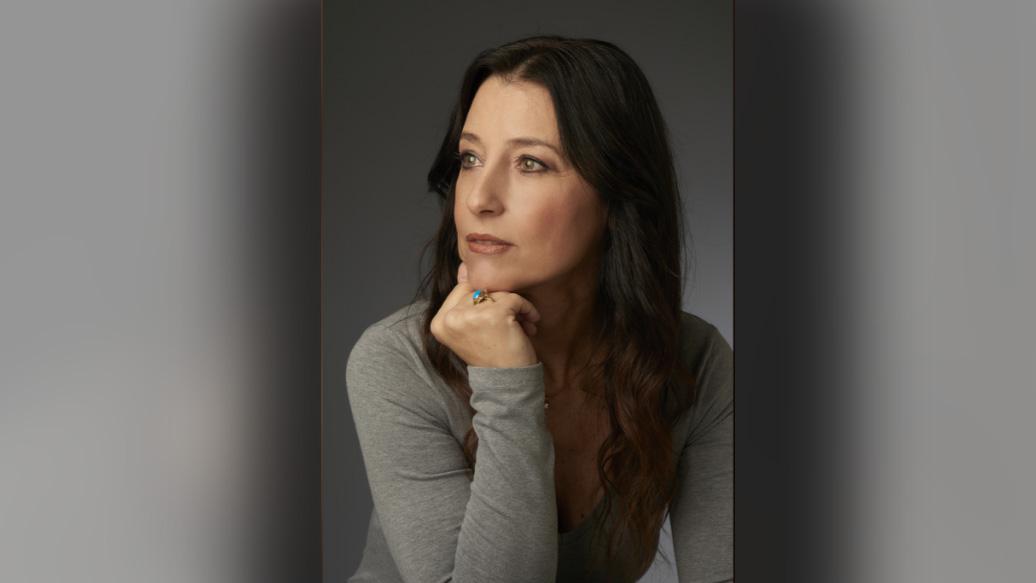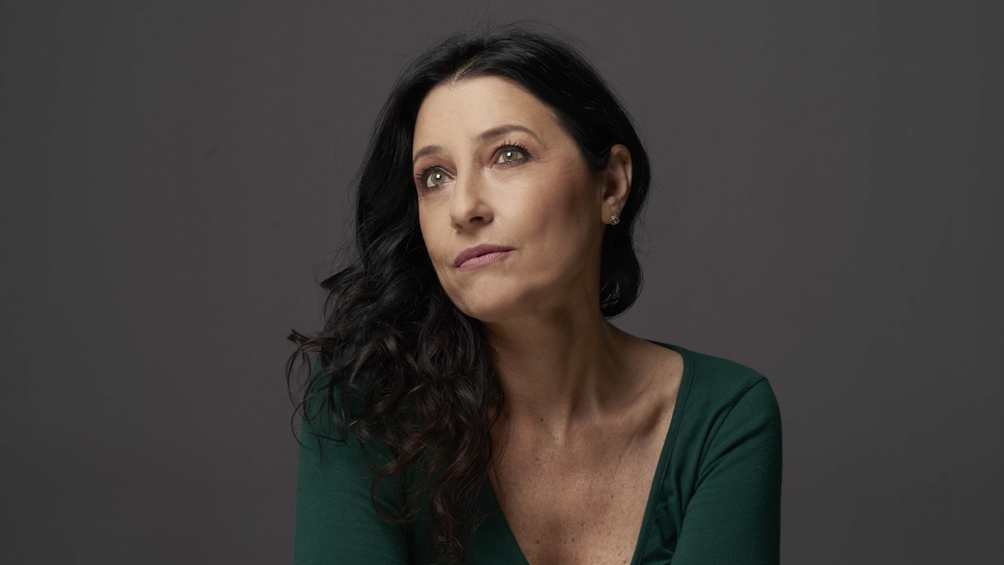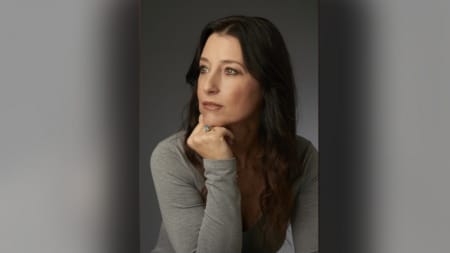 Magda Tagtachian has just become an Armenian citizen.
Magda Tagtachian has just become an Armenian citizen.
Artsaj, an independent and autonomous republic with a historically Armenian population, located in the South Caucasus, on the border between Armenia and Azerbaijan, which was invaded in 2020 by this second nation, is the setting chosen by the writer and journalist Magda Tagtachian to continue with the inner search and the love of her character Alma Parsehyan, a trilogy that began in 2020 with “Alma Armenia”.
As in his previous works, Tagtachian’s new book, edited by Plaza and Janés, builds a love story with characters inserted in his time and faithful to his Armenian origin. But what in “Alma Armenia” was Armenia and in “Rojava” that enclave of militia women in Northern Syria, in “Artsaj” is the border territory between two opposing nations and in the midst of the 44-day War, which occurred in 2020.
In this context of the warlike conflict, Tagtachian unfolds the love story of its protagonists, the fraternity of two cousins, and the struggle of the characters to heal their wounds and reconcile with their past.
The author, who worked as a journalist at Editorial Atlántida and the newspaper Clarín, has already recorded the past and present of the Armenian people in her previous works “Alma Armenia” (Vera Romántica, 2020), “Rojava” (Plaza y Janés, 2021 ) and “Nomeolvides Armenuhi” edited by Sudamericana in 2016 in a sold-out edition and reissued by Plaza and Janés in 2021.
About the genre in which he inscribes his novels, which he defines as “geopolitical fiction” and the possibility that romantic literature gives him to vindicate a cause that he feels as his own since he recently adopted Armenian citizenship, Tagtachian spoke with Télam. Here are the essential sections of that talk.
-From your work with the present, in this case with a very recent war, your literature has a careful documentation work…
-It is an emotional, spiritual journey, with a lot of documentation. They have a lot of research. There is a love story and a geopolitical story with data and news.
– Do you register within the romantic novel? How do you define the genre of your texts? Did you ever talk about making “romantic fiction with newspapers”…
-It is a romantic story but with adventures and current affairs. For me it’s romantic geopolitics, which I don’t know if it exists because I’m making fiction and love stories with what’s in the newspapers. This novel has the events that occurred in 2020, so I worked a lot on today. I do not go to the past, to history to tell a romance, as other colleagues do. I recount a war that happened in 2020, where the pandemic is also present, where the context is present. On November 9, 2020, the tripartite agreement between Russia, Azerbaijan and Armenia was signed, and I sat down to write.
-How did you experience the war and how did the idea of transforming it into the setting of Alma’s story come about?
-I followed the war live, with impotence, rage and pain. Eager to get on a plane and make myself available to help. While talking with friends and colleagues in Artsakh, Armenia, Argentina and the diaspora I was thinking about my next novel. My head was spinning day and night. I wanted to write about Artsakh. I couldn’t put the horror down on paper. It was a bundle of nerves and anguish. I couldn’t find the thread for the plot or for the characters.
-“Artsaj” follows the approach to the land of your ancestors that you started with “Armenhui” and that had its correlate in that you became an Armenian citizen this year…
– Yes. I am one of the three million Armenians. I live it as an act of justice and responsibility and thanks to my grandparents for the legacy they gave me. They were survivors of the genocide, they didn’t say it, they kept quiet and when they arrived in Argentina they registered Armenhui at Customs as a Turkish citizen.
-But your gratitude towards your grandparents is also given in that visibilization that you make in your novels of the Armenian cause…
-Yes. I am looking for this cause. That’s why I became an Armenian citizen. Because I feel it organically. I am a fish that returned to the water.
-However, part of the action of “Artsaj” is located precisely in Turkey, what did that fact generate for you?
-Turkey generates a contradiction and a pain, a rage and a very great impotence in me. I began to notice it when readers, reading my works, commented on Turkish soap operas. I began to notice the disclosure apparatus of Turkey and specifically the Erdogan regime. I have nothing against the Turks, but I do have something against the autocratic regime, something unknown to those who see the sponsorship of Turkish Airlines on River’s shirt, those who go to Cappadocia for their honeymoon, those who have tea in those mansions in Istanbul that belonged to the Armenians and that were appropriated when the hunting and genocide began. It irritates me that they come to talk about Turkey because I understand that the person who speaks to me does not understand that when he bought a ticket on Turkish Airlines and travels happily to Istanbul or Cappadocia, he does not know that a few kilometers away they are torturing and killing people. But the Turkish state is not unaware that all these mansions where they go to have tea have many inscriptions in Armenian. .
-Since Rojava you knew that you wanted to resume the character of Alma that began in “Alma Armenia”…
-Actually, I first knew that Artsakh wanted to tell. First it was the journalistic topic and then I thought how to take up the open topics. I use my characters to tell the news, the front page of the newspaper.
I knew that I owed Alma a future, a life, and while talking with a friend it occurred to me that I was going to take her to Turkey. I wouldn’t be entirely safe in Turkey. By article 301 of the Penal Code she could be put on trial and imprisoned, as are the opponents of the Erdogan regime. She happened to Orhan Pamuk, Nobel Prize winner and Turkish citizen. He recently declared that she is afraid to live in Istanbul. The writer of Turkish origin Elif Shafak, who has made visible the Genocide committed by the Ottoman Empire -current Turkish state- against the Armenian people, lives in Europe.
-That journey of your character was also liberating for you…
-Yes. He has also been illuminating. I talk to Alma. She was gaining strength from my first novel and she was growing inside of me. I did not dare to say that she was my alter ego but it is so. Alma grew up and so did Magda. So yes, he is a healer, although I don’t know if the wounds of a war can be healed, of a genocide that Turkey does not recognize and that continues to perpetrate to this day.
 The author
The author
-As in the other novels, in the midst of war and suffering, there is also joy: sex, music, cooking, fragrances…
-Yes. Because all of that is present in the culture of the Middle East and runs through my work. That is part of the Armenian identity. to what is present in the culture of the East, not that it has to do with sensuality, music at meals, each one of the meals is that too and that goes through all my work. That is why I evoke a poem by William Saroyan that says: “Go ahead, continue to annihilate this race! // Destroy Armenia! See if you can! // Heal them from their homes and send us to the desert! // Leave them without food! // Burn your houses and churches // but then see if you can’t // laugh again, // see if you don’t sing or pray again. // And when two of them meet // anywhere in the world // see if they don’t create a new Armenia again”.
-“Artsaj” was the third part of the Alma saga, do you think new adventures can follow?
-It is a very difficult question. I can’t tell you for sure what’s next. If I can tell you, I’m going to talk about sensations and feelings. I’m still in the decanting period. But I could continue and it happened to me that in the presentations the readers asked me to give it a continuation. I have this feeling that I have to continue to illuminate this Armenian problem. I think that if I have something to say in my chest it will be stronger than me and I will sit down and write it. I have several stories in my head. They are like little planes that fly overhead. I don’t know which one is going to land.


